Are you curious about ancient civilizations and archaeological finds? Here are the archaeology museums you must see in Austria:
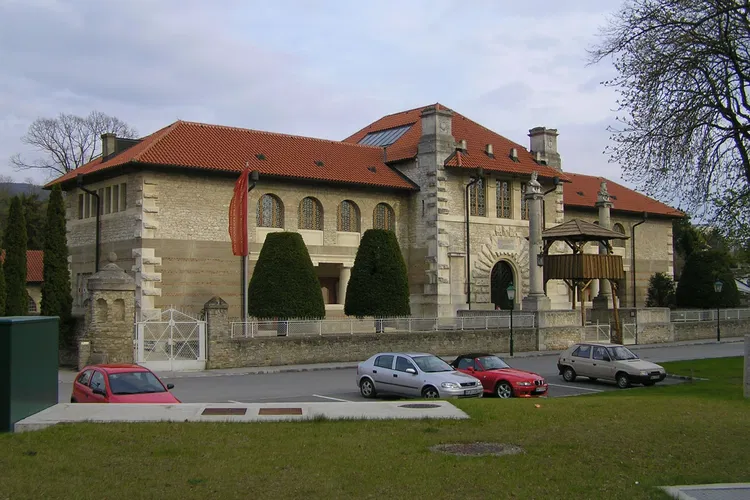
Carnuntum
Petronell-CarnuntumCarnuntum, once the capital of the Roman province Pannonia Superior, is located on the Danube, approximately 35 km east of Vienna. This historical site offers a glimpse into the past, allowing visitors to explore the remnants of a once thriving Roman city.- Online discount!
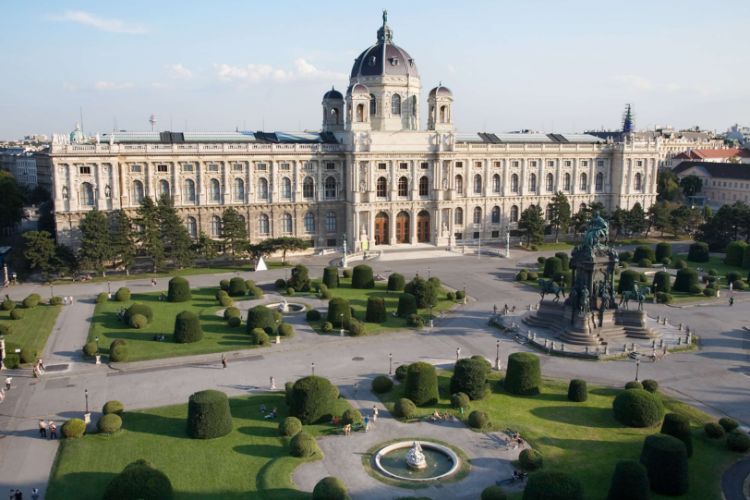
Kunsthistorisches Museum Vienna
ViennaThe Kunsthistorisches Museum Vienna is one of the world’s foremost museums. Experience the rich collections of the Habsburgs, a dynasty that ruled in Austria for more than 600 years, for most of that time as Emperors of the Holy Roman Empire. It boasts exhibits spanning five millennia, from Ancient 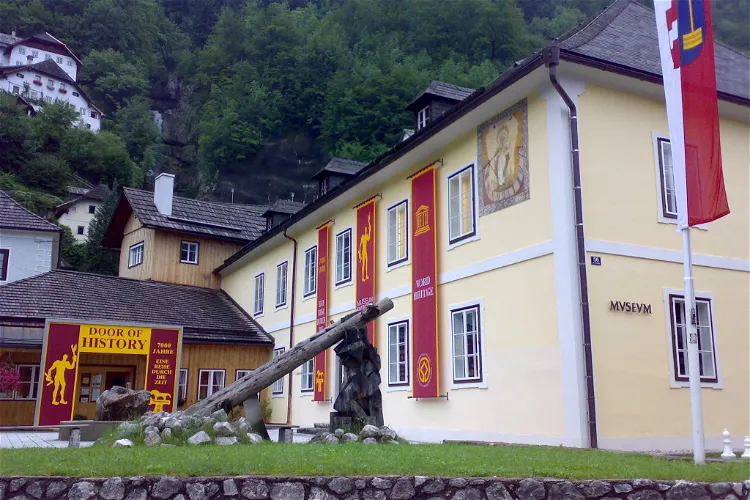
Hallstatt Museum
HallstattThe Hallstatt Museum, located in Hallstatt, Upper Austria, is renowned for its unique collection of discoveries from the local salt mines and Iron Age cemeteries near the mines. These collections provide a deep insight into the Hallstatt culture, making the museum a significant site for historical and archaeological enthusiasts.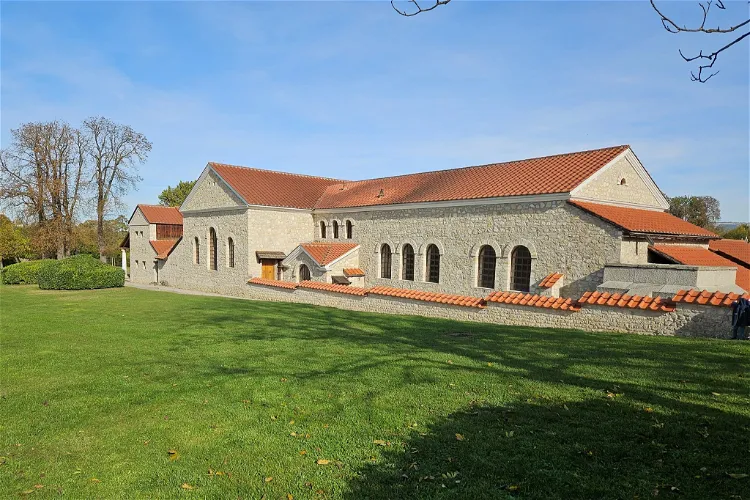
Archaeological Park Carnuntum
Petronell-CarnuntumCarnuntum, once the capital of the Roman province Pannonia Superior, is a significant historical site located on the Danube, approximately 35 km east of Vienna. Its strategic location and historical significance make it an interesting destination for those interested in Roman history.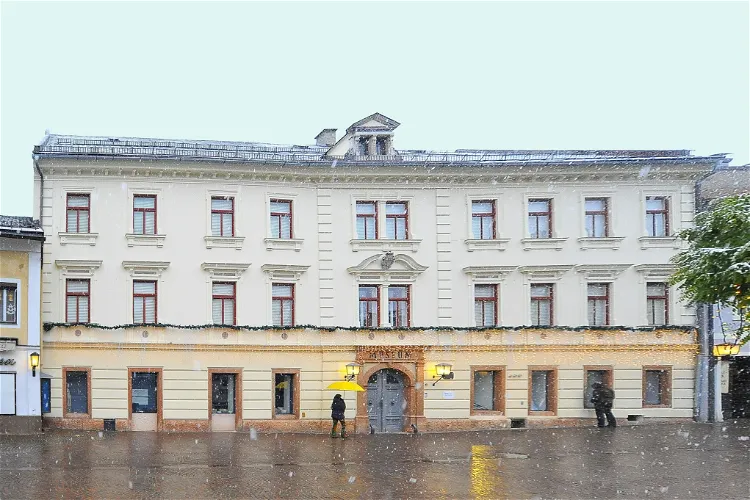
Museum der Stadt Villach
VillachThe Stadtmuseum Villach, located in the former Palais Crusiz in Widmanngasse, Villach, was established in 1873. The museum's foundation was made possible by builder Carl Andreas Picco, who generously donated his collection to the institution.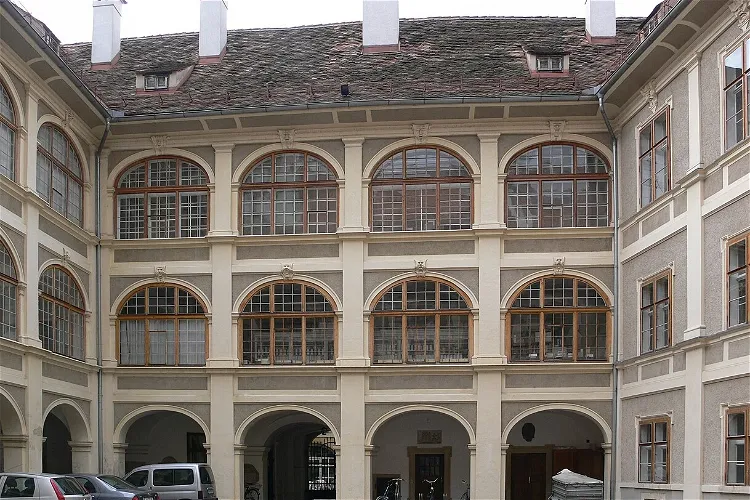
Joanneum Universal Museum
GrazThe Universalmuseum Joanneum, located in the Austrian state of Styria, holds the distinction of being the oldest, largest, and most versatile museum in Austria, second only to the Kunsthistorisches Museum Wien. This museum offers a wide range of exhibits and collections, making it a significant cultural and historical site in Austria.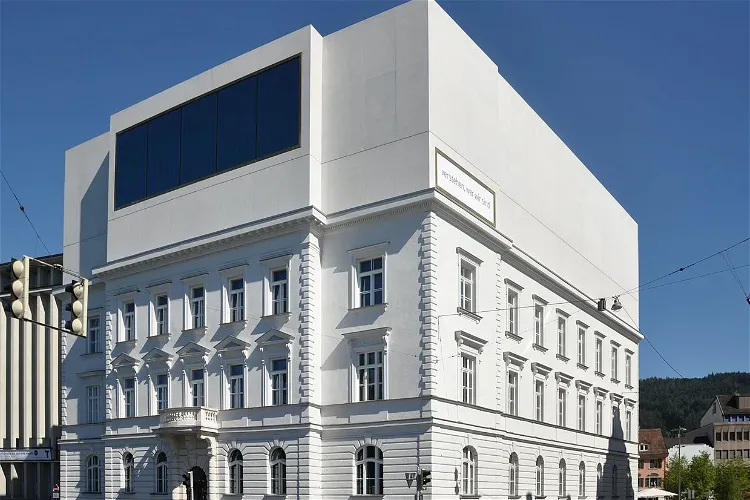
vorarlberg museum
BregenzThe vorarlberg museum, located in Bregenz, serves as the state art and cultural museum of the Austrian federal state of Vorarlberg. Established in 1857, the museum has been a hub for the collection and preservation of the state's art and cultural material for over a century.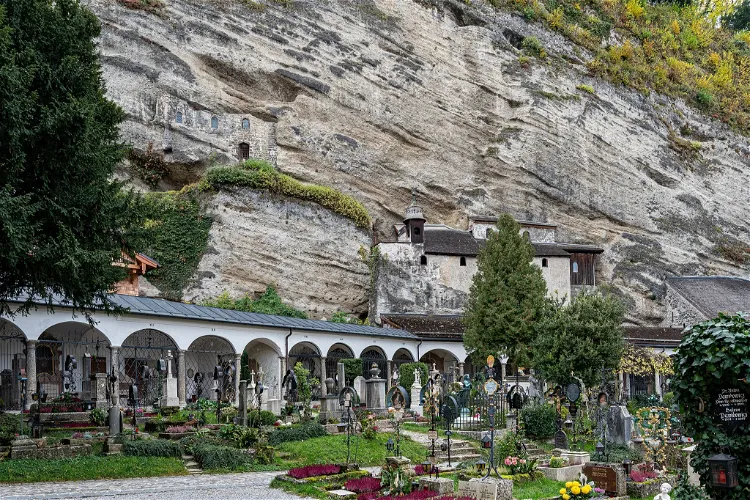
Katakomben Salzburg
SalzburgThe catacombs of Salzburg, situated on the edge of the Petersfriedhof, are a significant historical site. They were carved into the Festungsberg, a mountain in Salzburg, and are believed to be of late antique-early Christian origin. Despite their name, these catacombs were not used as burial sites but likely served as early Christian meeting places.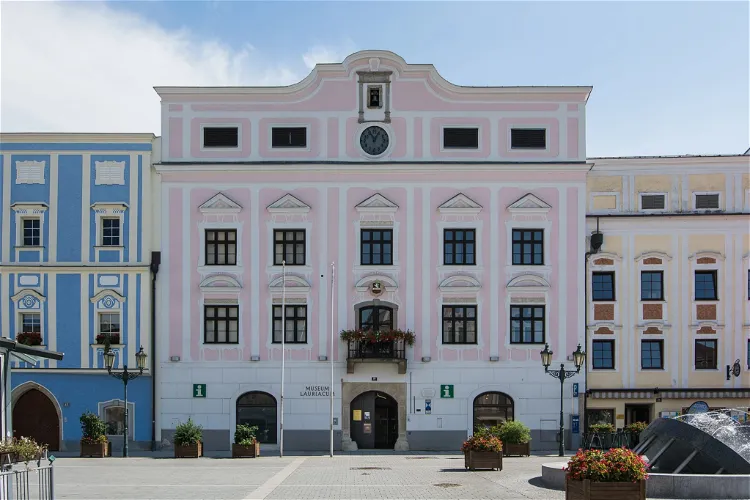
Museum Lauriacum
EnnsThe Museum Lauriacum is situated in the city of Enns, within the district of Linz-Land in Upper Austria. This location makes it easily accessible for tourists visiting the region, offering a unique opportunity to delve into the rich history of the area.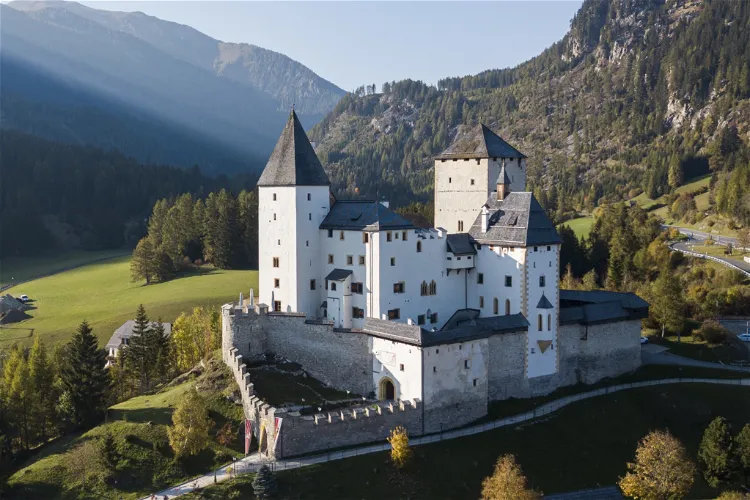
Mauterndorf Castle
MauterndorfMauterndorf Castle, a historical monument in the Austrian state of Salzburg, is situated at an impressive altitude of 1,138 metres. This location not only provides a unique historical experience but also offers breathtaking views of the surrounding landscape. The castle is located in the municipality of Mauterndorf, making it easily accessible for tourists.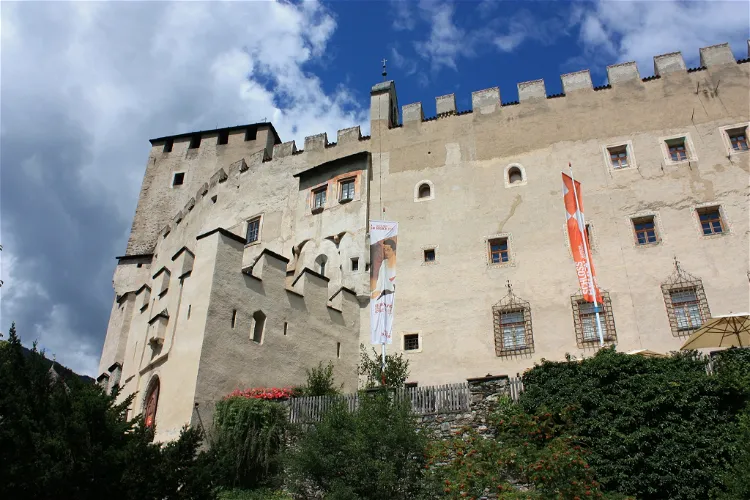
Burg Bruck
LienzSchloss Bruck served as the residence of the Counts of Görz from around 1278 to 1500, adding a rich historical context to the castle. One of the key features of the castle is its chapel, adorned with frescoes by Simon von Taisten. These frescoes are a significant attraction for art and history enthusiasts visiting the castle.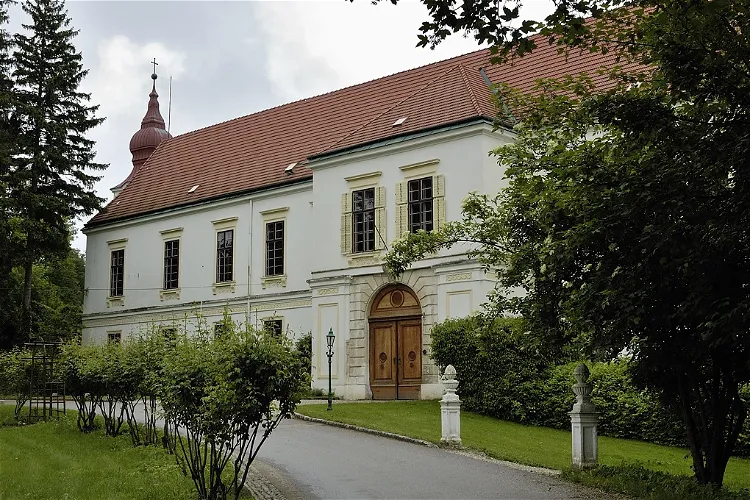
Loosdorf Castle
FallbachLoosdorf Castle, situated in the Lower Austrian wine quarter in the municipality of Fallbach, is a historical site with a rich past. The castle was first mentioned in historical documents in 1416, under the name Feste Lostorff. This makes it a place of interest for those who appreciate history and architecture.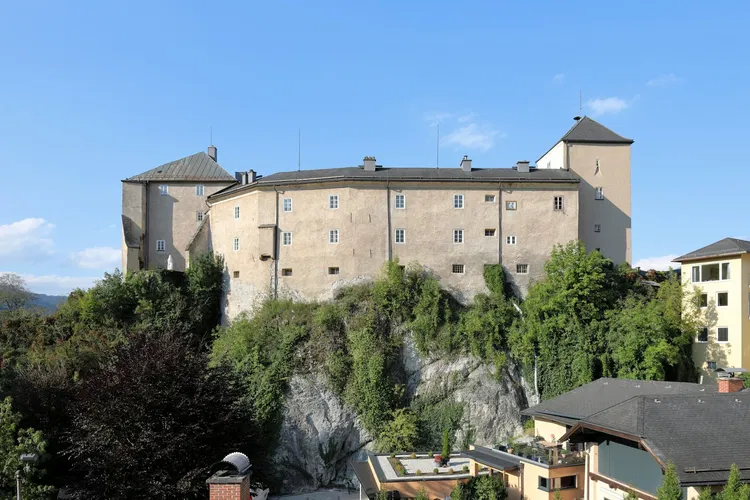
Museum Burg Golling
TorrenIn 1971, a museum was established within the castle, offering visitors a glimpse into the castle's rich history. The museum also showcases fossil finds from the surrounding area, providing a unique opportunity to learn about the region's geological past. This combination of history and science makes the museum a compelling attraction for tourists.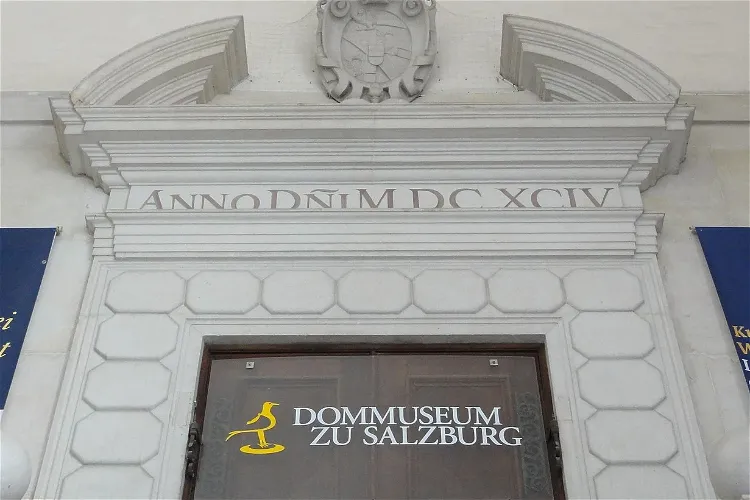
Cathedral Museum
SalzburgThe Salzburg Cathedral Museum, located in the South Oratory of the Salzburg Cathedral, serves a dual role as the Diocesan Museum. This unique location within the cathedral itself offers visitors a chance to explore the rich history and religious significance of the region.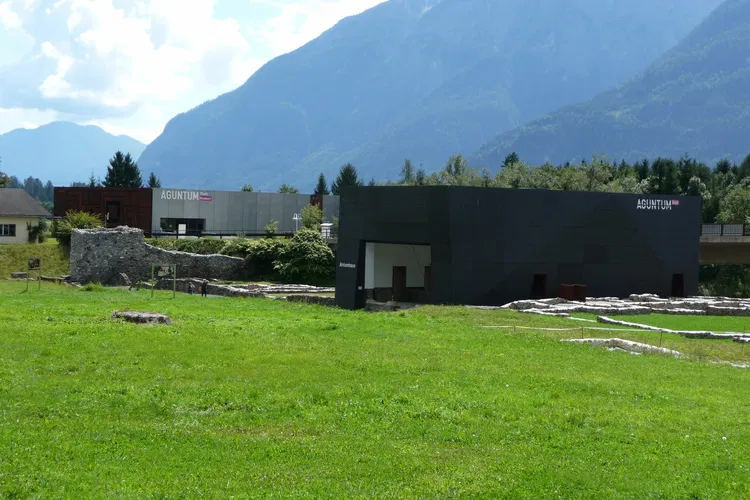
Aguntum
StribachAguntum, a Roman settlement, is situated in the present-day Austrian state of Tyrol, approximately 4 km east of Lienz. The settlement was elevated to the status of an autonomous city, Municipium Claudium Aguntum, by Emperor Claudius. This historical significance of Aguntum provides a rich backdrop for visitors to the museum.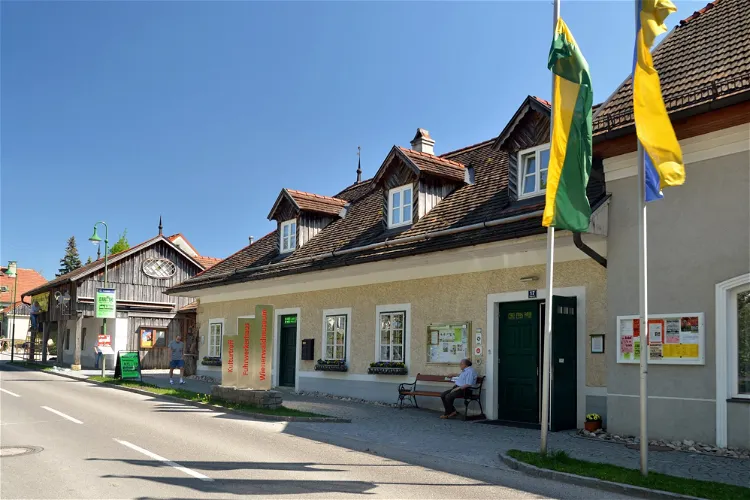
Wienerwaldmuseum Eichgraben
HuttenThe Wienerwaldmuseum Eichgraben is a local museum located in Eichgraben, Lower Austria. It offers a unique opportunity to explore the local history and culture of the region.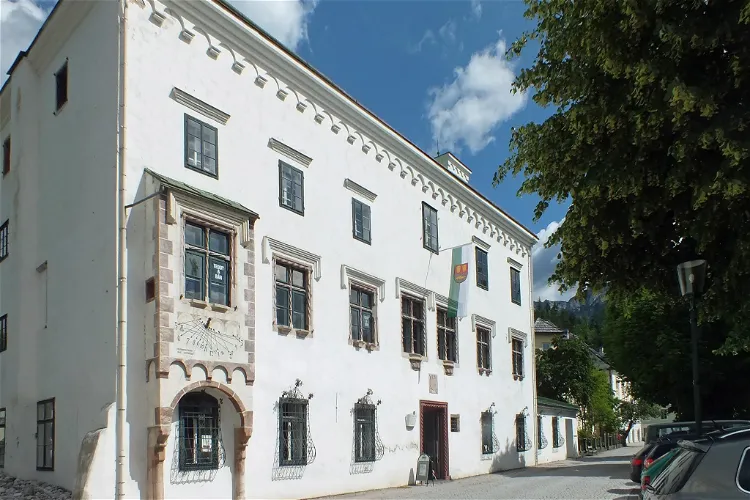
Kammerhofmuseum
Bad AusseeThe Ausseer Kammerhofmuseum is a local history museum situated in the Kammerhof in Bad Aussee, Salzkammergut, Austria. The museum is housed in a building that was first mentioned in historical documents in 1395. Over the centuries, the building has undergone several renovations, but much of the original structure has been preserved.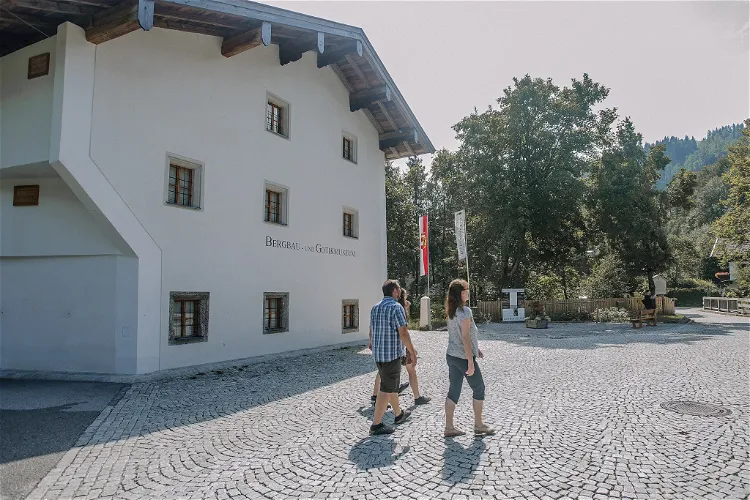
Mining and Gothic Museum Leogang
BergThe Museum of Mining and Gothic Art Leogang, established in 1992, is situated in the scenic locale of Hütten, Leogang, in the Zell am See District of the Austrian Province of Salzburg. This museum is a tribute to the region's 3000-year-old mining tradition and serves as a testament to the rich cultural and historical heritage of the area.- 19
Ötzi Village
KöfelsThis archeologic open-air museum shows the village life and houses from the Ötzi era. 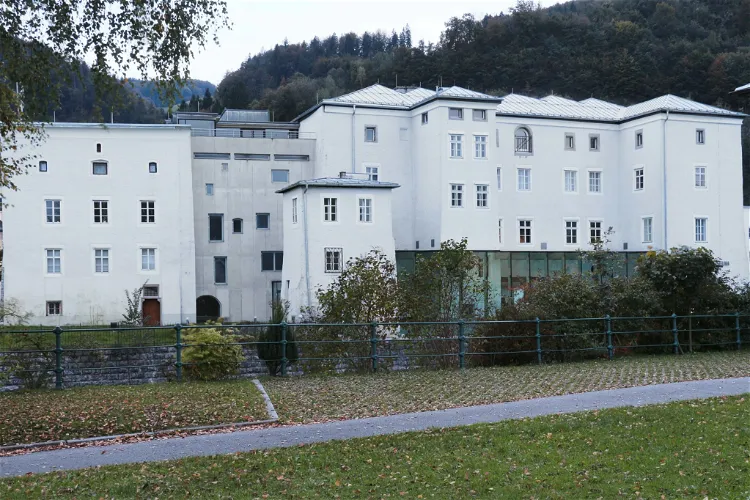
Keltenmuseum
HalleinThe Keltenmuseum Hallein is situated directly on the Salzach at Pflegerplatz No. 5 in the town of Hallein, in the state of Salzburg. This location is easily accessible and offers a picturesque setting for visitors to the museum.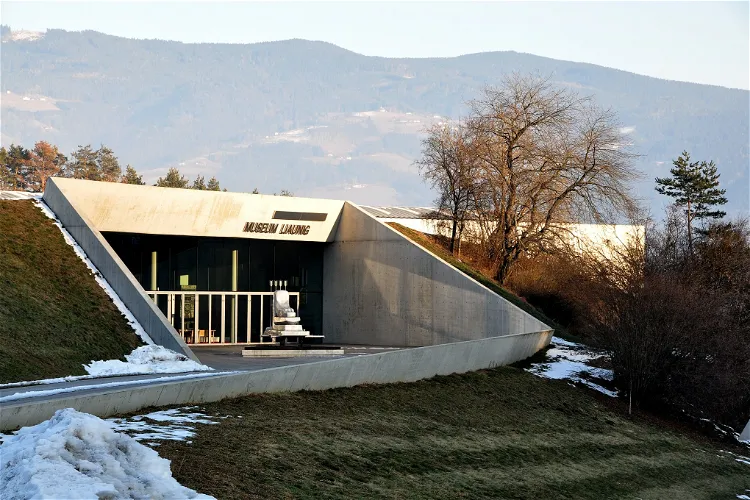
Museum Liaunig
NeuhausThe Museum Liaunig, located in Neuhaus, is a private art museum in the region of Carinthia, Austria. It was inaugurated in 2008 and is one of the country's private museums dedicated to contemporary art. The museum showcases the private collection of industrialist and art collector Herbert W. Liaunig, who resides in Neuhaus Castle in southeastern Carinthia. Since 2018, the museum has been managed by his son, architect Peter Liaunig.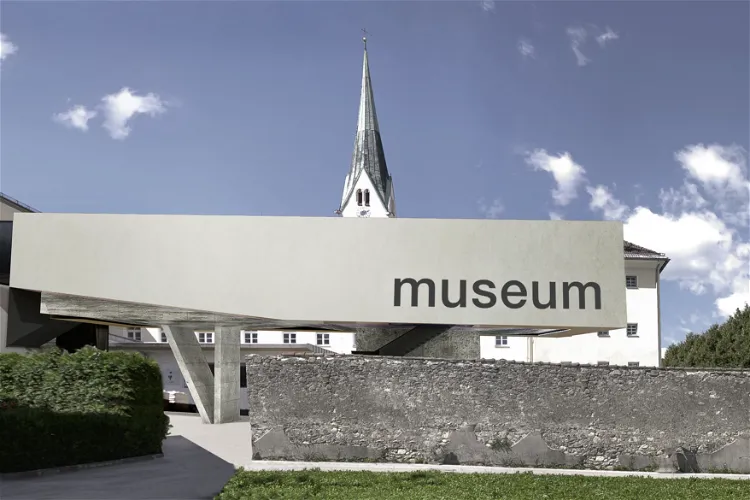
Museum der Völker
SchwazThe Museum der Völker, located in Schwaz, Tyrol, was established in 1995 by Gert Chesi. It is recognized as one of the European museums that house ethnographic collections, providing a rich insight into various cultures and civilizations.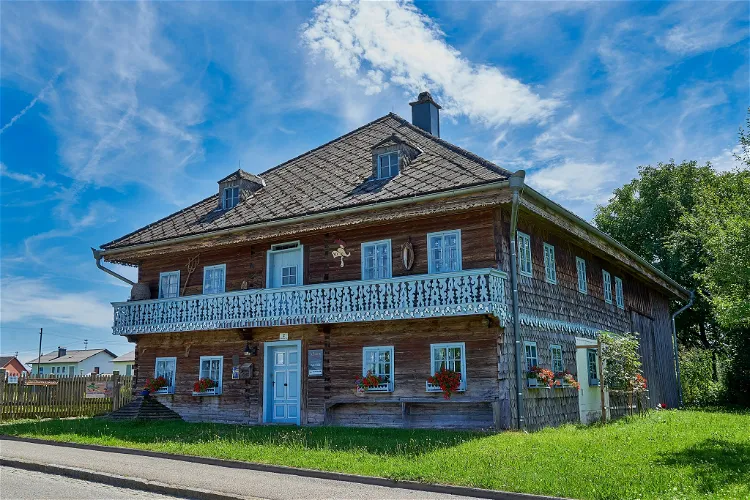
Ochzethaus
AltheimThe Ochzethaus is a Roman experience museum situated in Altheim, Upper Austria. Originally a farmhouse in the rural community of St. Laurenz, it was acquired by the Altheim municipality in 1993 and converted into a museum. The name 'Ochzethaus' is derived from the river name 'Ache', colloquially known as 'Och'.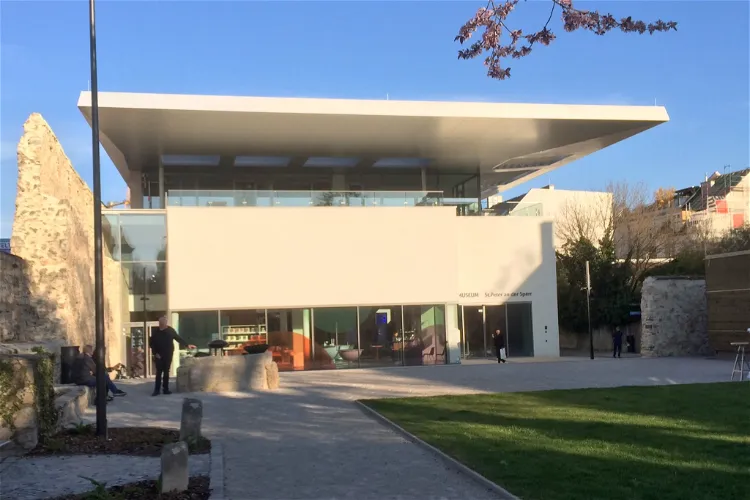
Museum St. Peter an der Sperr
Wiener NeustadtThe Museum St. Peter an der Sperr is situated in the Petersgasse, within the statutory city of Wiener Neustadt in Lower Austria. This location is easily accessible and offers a rich cultural experience for tourists visiting the area.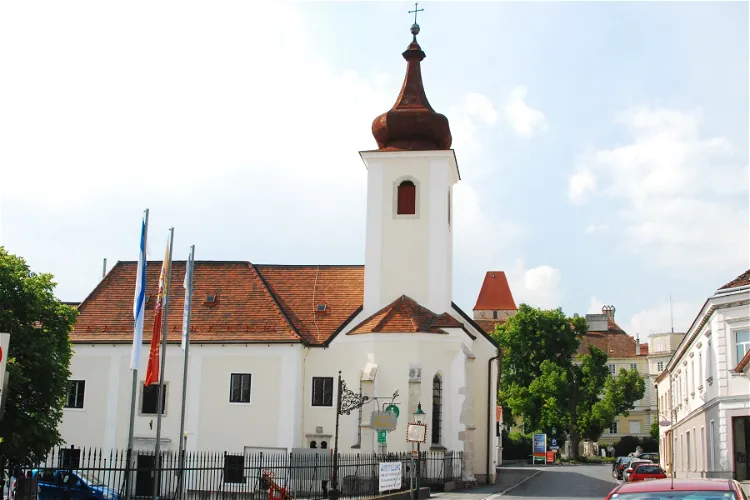
Höbarth Museum
HornThe Höbarth Museum, located in the city of Horn, is named after the local researcher Josef Höbarth. This museum is a significant part of the city's cultural and historical landscape, offering visitors a glimpse into the rich history and heritage of the region.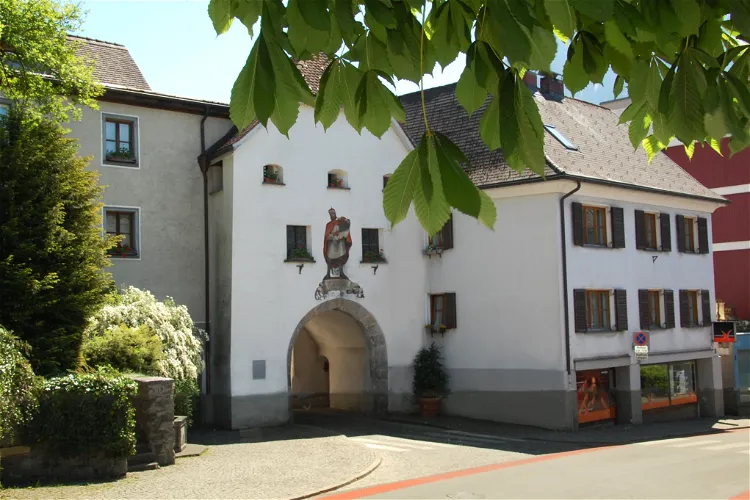
Stadtmuseum Bludenz
BludenzThe Stadtmuseum Bludenz is situated in a significant historical location, the Upper Gate, also known as the Feldkircher Tor. This gate is positioned at the western exit of two important streets, Kirchgasse and Herrengasse. This location not only adds to the historical charm of the museum but also makes it easily accessible for tourists.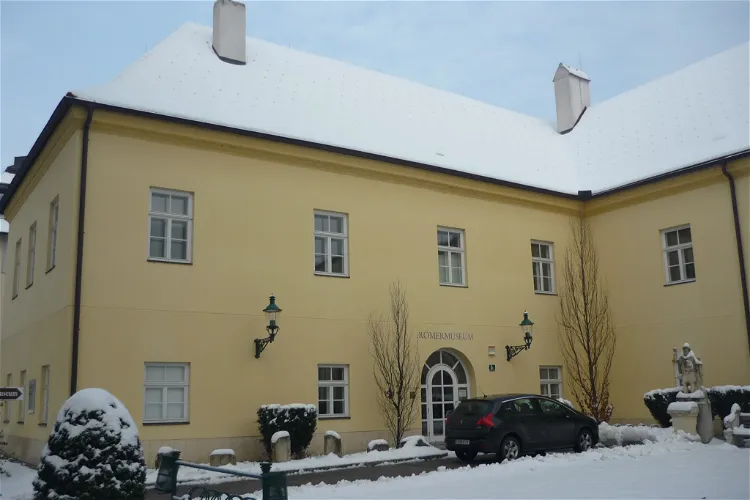
Roman Museum Tulln
Tulln an der DonauThe Roman Museum in Tulln an der Donau, Lower Austria, is a significant destination for those interested in history, particularly that of the Roman era. The museum is primarily dedicated to the exhibition of finds from the fort and civilian settlement of Comagena. These artifacts provide a glimpse into the lives of the people who lived in this region during the Roman period.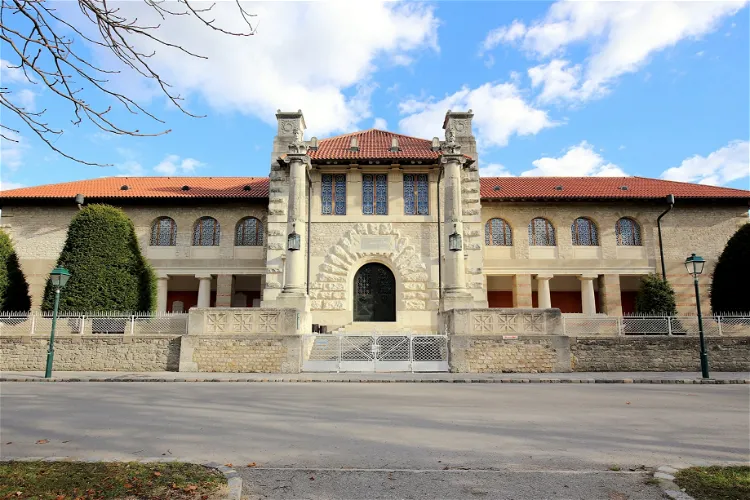
Museum Carnuntinum
Bad Deutsch-AltenburgThe Carnuntum Museum, situated in Bad Deutsch-Altenburg, Austria, is a significant repository of artifacts unearthed from the archaeological site of the ancient Roman city of Carnuntum. This city, located on the left bank of the Danube, was a strategic center during the Roman era. The museum offers a unique opportunity to delve into the history and daily life of the ancient legionary camp and the civil city of Carnuntum.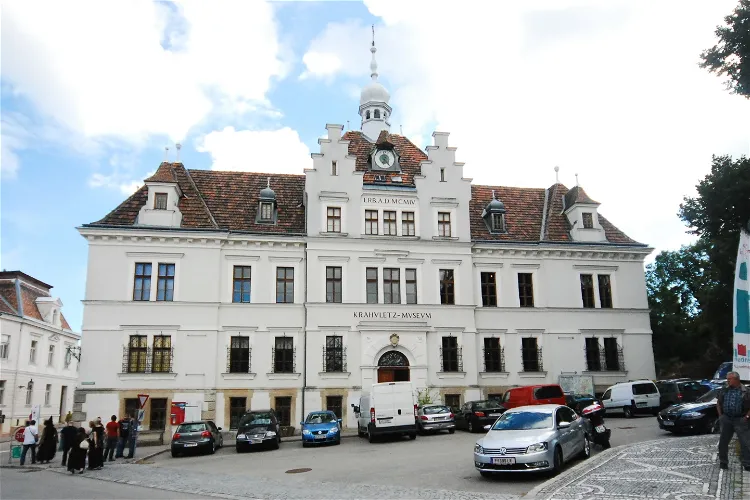
Krahuletz Museum
EggenburgThe Krahuletz Museum, situated in the city of Eggenburg in Lower Austria, is home to a variety of collections. These collections encompass regional earth history, archaeology, folklore, regional and city history, and a clock collection. This diverse range of exhibits provides a comprehensive insight into the region's past and its cultural heritage.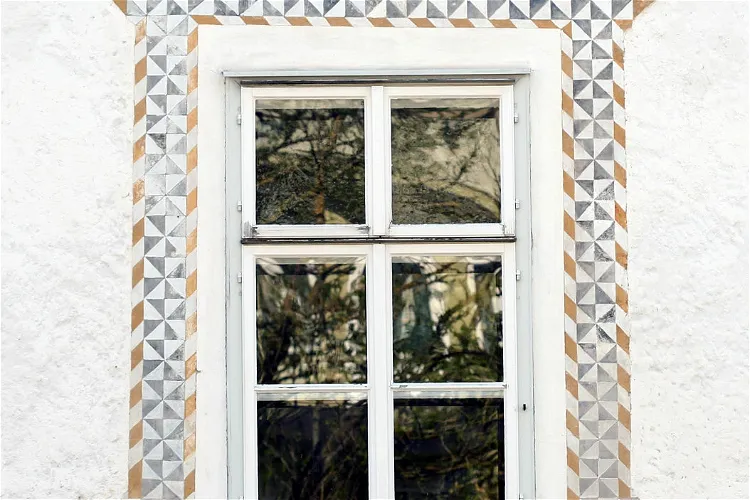
Schützenscheibenmuseum
ScheibbsThe Schützenscheibenmuseum Scheibbs, established in 1991, is the largest museum of its kind, housing around 250 historical exhibits. These exhibits primarily consist of painted discs from the Scheibbs shooting guild, dating from 1670 to the present day. The museum provides an overview of the history of Central European shooting, particularly as a supplement to hunting or (para-)military shooting.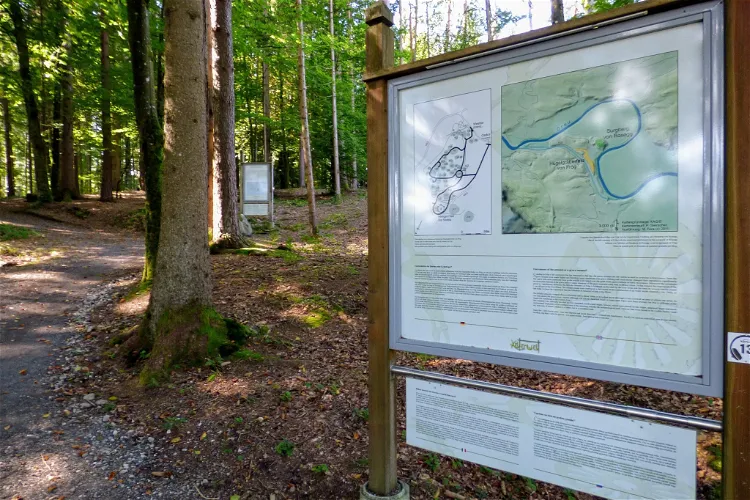
Celtic World Frög
Sankt LambrechtKeltenwelt Frög is an archaeological park and museum situated in the quaint village of Frög, within the municipality of Rosegg in the district of Villach-Land, Carinthia. This unique location offers visitors a chance to delve into the world of the Celts, exploring their society, economy, and worldview through the archaeological finds from the Frög burial ground.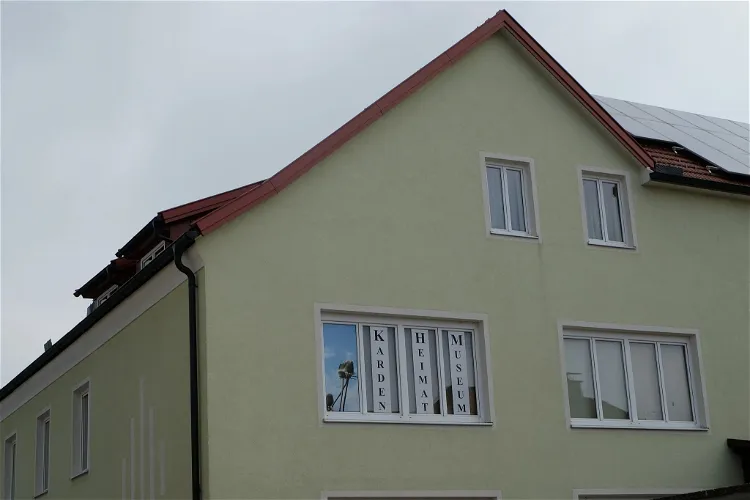
Karden- und Heimatmuseum Katsdorf
BodendorfThe Karden- und Heimatmuseum Katsdorf is situated in the old schoolhouse at the church square in Katsdorf, a district in Upper Austria. This location is steeped in history and provides a unique setting for the museum.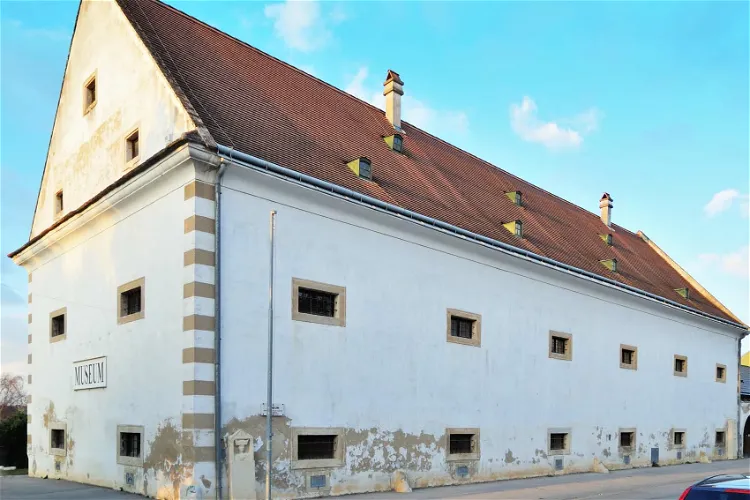
Museum Mannersdorf
Mannersdorf am LeithagebirgeThe Schüttkasten Mannersdorf am Leithagebirge, located in the town of Mannersdorf am Leithagebirge, is a significant historical site. Originally a grain storage facility for the Mannersdorf am Leithagebirge Castle, it now serves as a museum. The building, situated in Jägerzeile No. 9 in the district of Bruck an der Leitha in Lower Austria, is a protected monument, reflecting its historical and architectural importance.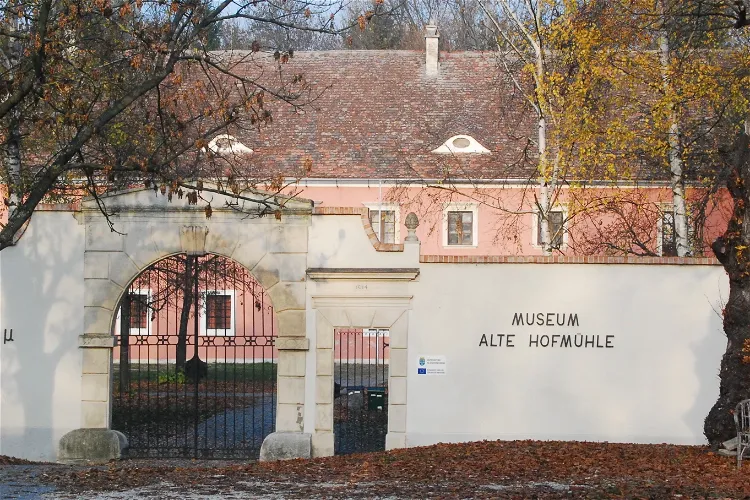
Museum Alte Hofmühle
HollabrunnThe Alte Hofmühle city museum in Hollabrunn is a unique destination for tourists interested in history and architecture. The museum is located in a protected former manor house that dates back to the 16th century. This historic building was used as a mill until the 20th century, providing a glimpse into the region's past.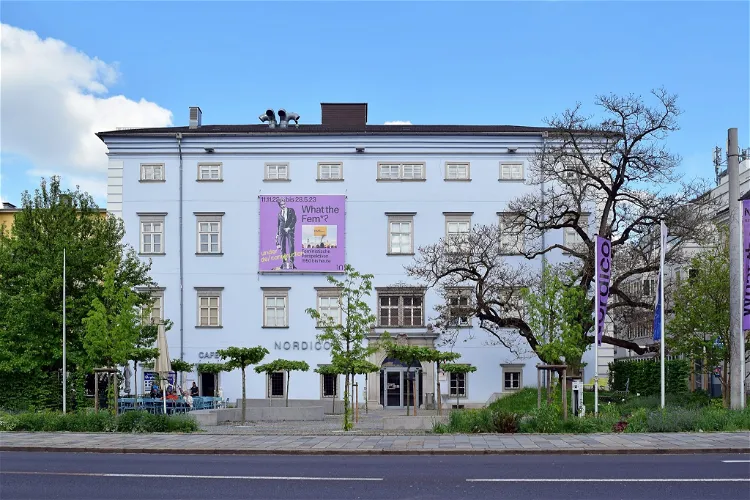
Nordico City Museum Linz
LinzThe Nordico City Museum is situated in the city hall district of Linz, Austria, specifically at Simon-Wiesenthal-Platz 1. This location is easily accessible and central, making it a convenient stop for tourists exploring the city.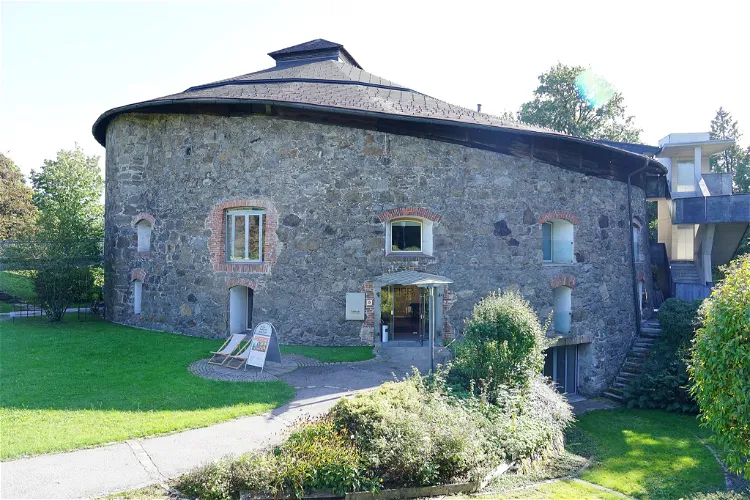
Stadtmuseum Leonding
LeondingThe Stadtmuseum Leonding, also referred to as the Turmmuseum, is situated in Tower 9 of the Linz Tower Fortification in Leonding. It has been functioning as a museum since 1999, providing a unique blend of history and culture to its visitors.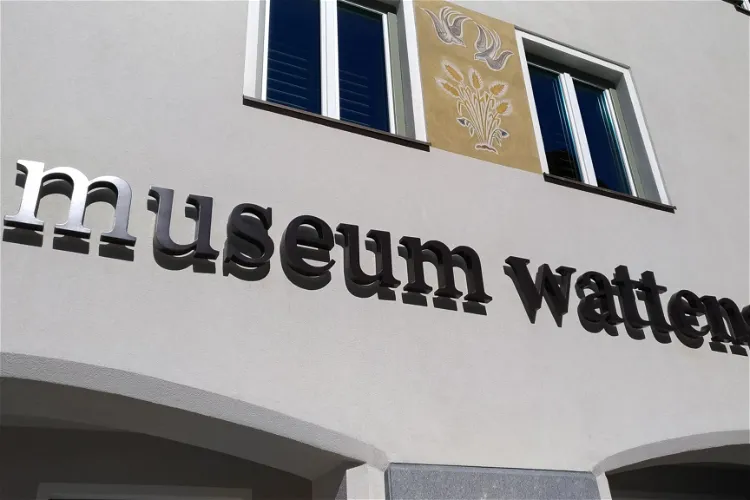
Wattens Museum
WattensThe Wattens Museum is situated in the market town of Wattens, within the Innsbruck-Land district of the Tyrol state. This location is easily accessible and offers a rich cultural experience for tourists visiting the area.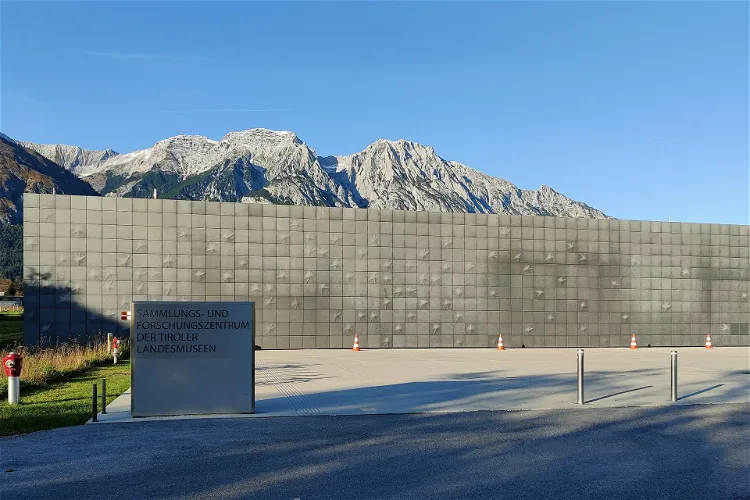
Tyrolean State Museum
Hall in TirolThe Tyrolean State Museum, also known as Il Ferdinandeum, is a significant cultural institution located in the city of Innsbruck. The museum was named after Duke Ferdinand II of Austria, reflecting the rich historical ties of the region. It offers visitors a chance to delve into the history and culture of Tyrol, making it a worthwhile destination for those interested in understanding the region's past.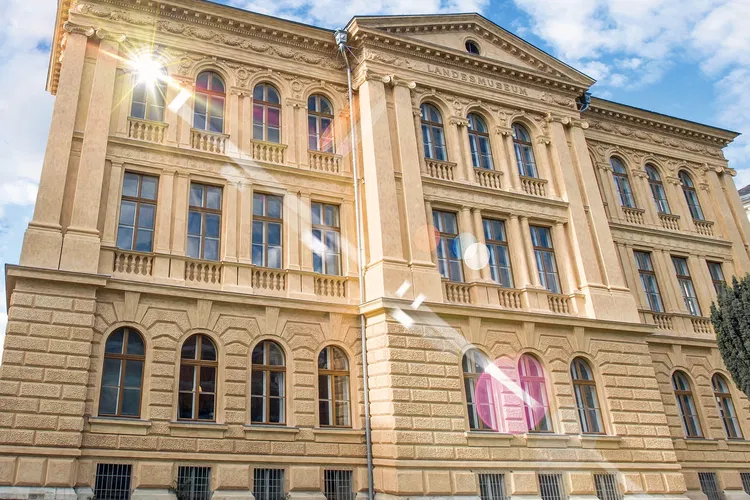
kärnten.museum Klagenfurt
KlagenfurtThe kärnten.museum, previously known as the Carinthian State Museum, is a cultural and natural science museum situated in Klagenfurt am Wörthersee, Carinthia, Austria. The museum is a significant cultural and scientific institution that offers a wide range of exhibits and collections, providing a comprehensive insight into the history, culture, and natural sciences of the region.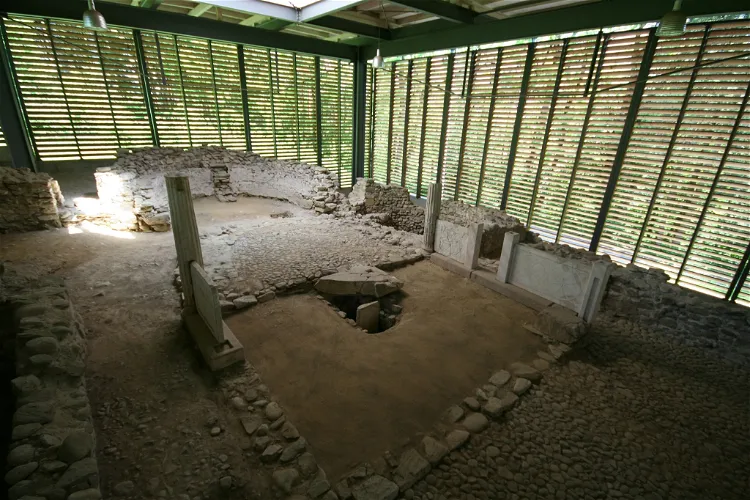
Roman Museum Teurnia
RojachTeurnia, now in ruins, was once a bustling Roman city located in western Carinthia. In the late antiquity, it served as a bishop's see and was even mentioned as the capital of the province of Noricum mediterraneum. Today, visitors can explore the remnants of this ancient city and get a glimpse into its rich history.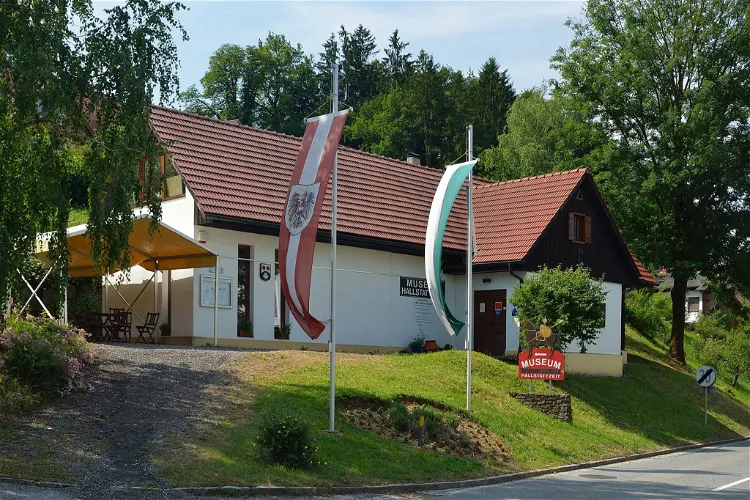
Hallstattzeitliches Museum Großklein
GroßkleinThe Hallstattzeitliche Museum Großklein, also known as Hamug, is a museum situated in the Styrian municipality of Großklein in the Leibnitz district. This museum is dedicated to the presentation of Hallstatt period findings from archaeological excavations in the settlement at Burgstallkogel and the associated burial mounds.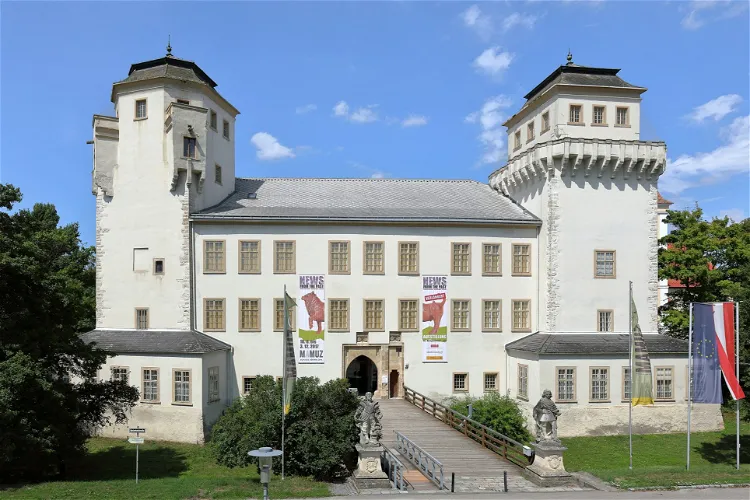
MAMUZ Castle Asparn / Zaya
Asparn an der ZayaSchloss Asparn, situated in the market town of Asparn an der Zaya in the Weinviertel region of Lower Austria, has been home to the Museum of Prehistory since 1970. In 2014, it also became the location for the Museum of Early History and Medieval Archaeology. These museums offer a unique opportunity for visitors to delve into the past and explore the early history of human civilization.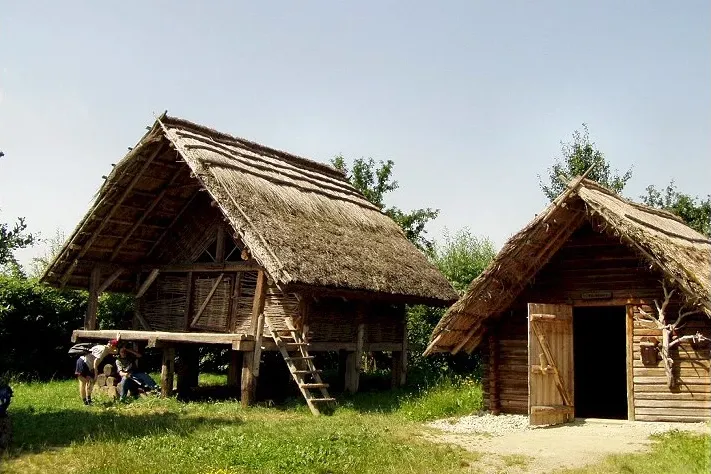
Freilichtmuseum Keltendorf Mitterkirchen
Mitterkirchen im MachlandThe Freilichtmuseum Keltendorf Mitterkirchen is a unique open-air museum that offers a glimpse into the life of the Celts during the Hallstatt period, which spanned from 800 to 450 BC. The museum is a reconstructed Celtic village, providing an immersive experience for visitors to understand the lifestyle, culture, and traditions of the Celts during this historical period.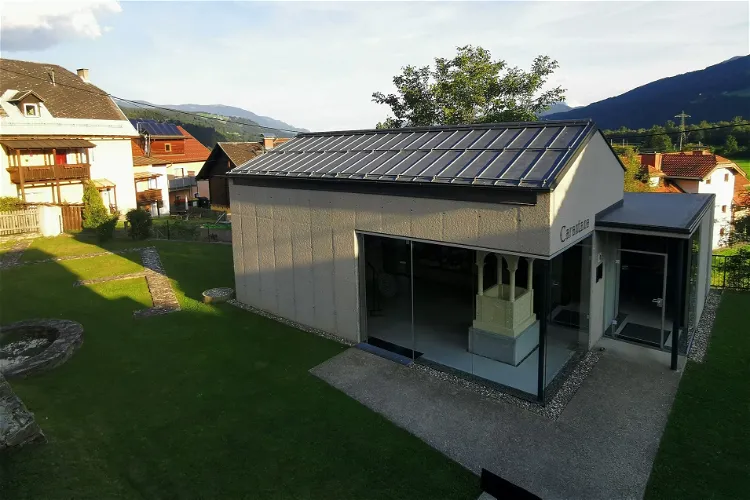
Museum Carantana
Spittal an der DrauThe Early Middle Ages Museum Carantana, often simply referred to as Museum Carantana, is situated in the Carinthian village of Molzbichl, which is a cadastral community of Spittal an der Drau. This museum is dedicated to the presentation of significant early medieval findings from archaeological excavations in the immediate vicinity.
Roman Museum at the Hoher Markt
ViennaThe Roman Museum at the Hoher Markt in Vienna is a branch of the Wien Museum and specializes in the history of Vienna in Roman times. Due to the limited space, the main focus of the Roman Museum is on the 2nd and 3rd century, the heyday of Vindobona (the Roman military camp located on the site of th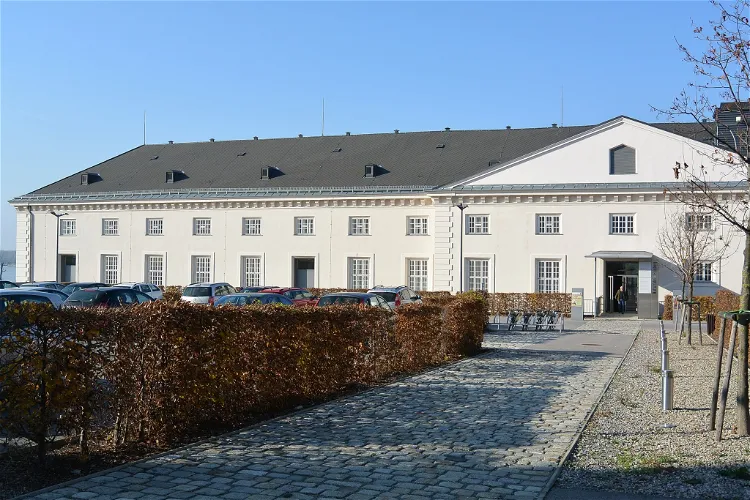
Kulturfabrik Hainburg
Hainburg an der DonauThe Kulturfabrik Hainburg is an exhibition center and an archaeological depot located in Hainburg an der Donau in Lower Austria. It is a place where history and culture intertwine, offering visitors a unique insight into the region's past. The center hosts various exhibitions throughout the year, making it a dynamic and ever-changing destination.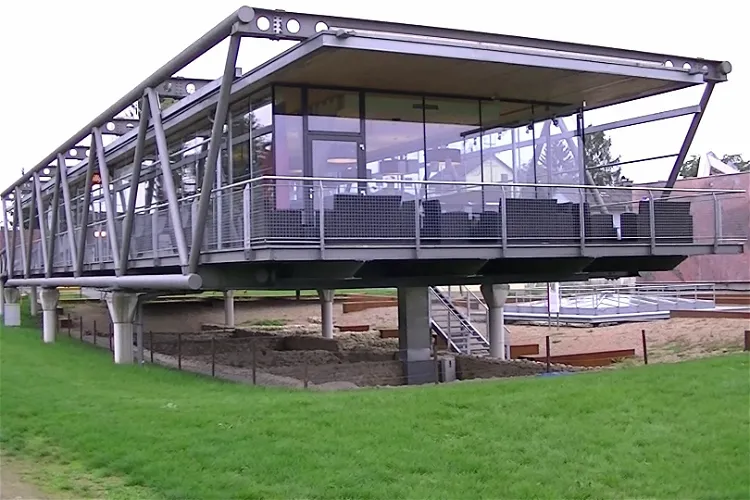
Roman Museum Flavia Solva
LeitringFlavia Solva was a city in the Roman province of Noricum, situated in the Leibnitzer Feld near Leibnitz in southern Styria, Austria. Today, the remains of Flavia Solva can be found in an open field about 40 km south of the Styrian capital, Graz, in the market town of Wagna. During the Roman era, it was located on the western bank of the Mur River, which also served as a connection to the Roman road network.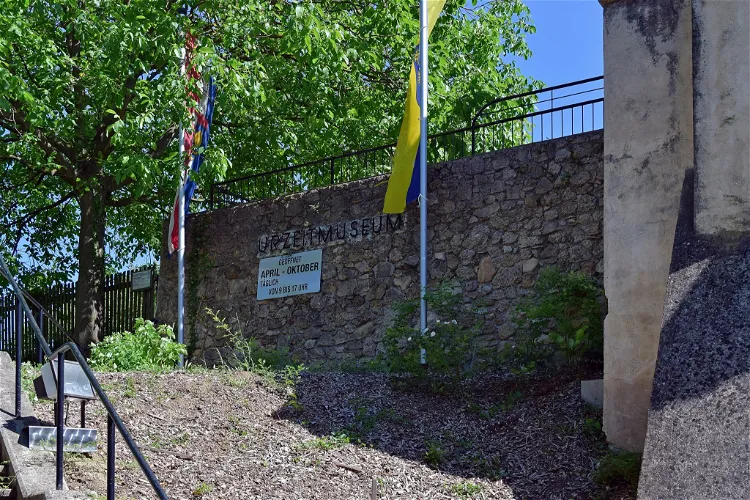
Urzeitmuseum Nußdorf ob der Traisen
Nußdorf ob der TraisenThe Urzeitmuseum Nußdorf ob der Traisen is situated in the market town of Nußdorf ob der Traisen, in the district of St. Pölten-Land, Lower Austria. It is conveniently located at the marketplace, making it easily accessible for visitors.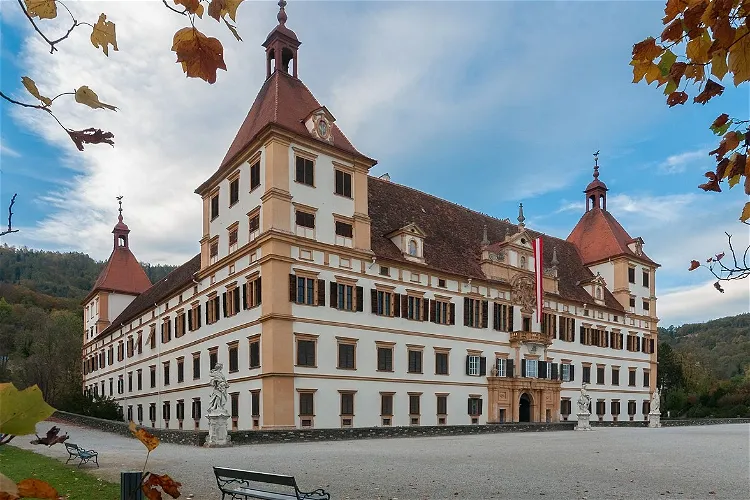
Eggenberg Palace
GrazEggenberg Palace, known as Schloss Eggenberg in German, is a prominent landmark in the Austrian state of Styria. It is the largest and most significant baroque castle in the region, situated on the western outskirts of the city of Graz. The palace's grandeur and historical significance make it a notable point of interest for visitors to the area.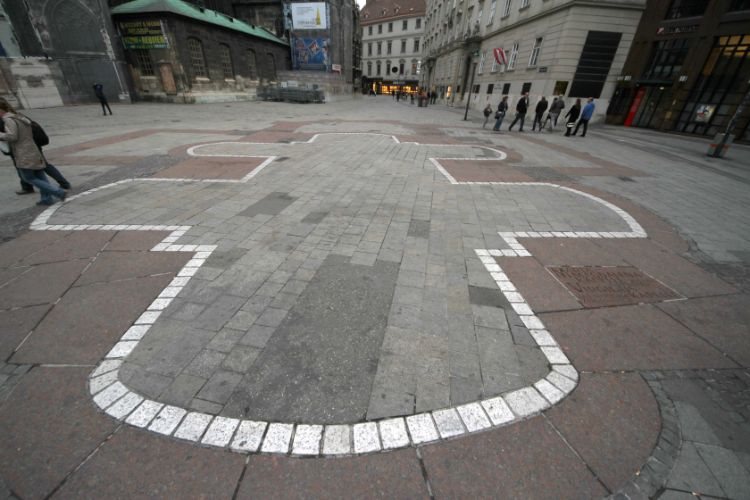
Vergilius Chapel Museum
ViennaThe Vergilius Chapel (Virgilkapelle) is an underground crypt that is located next to the Stephansdom in Vienna. The chapel is rectangular in form with six niches and lies around 12 meters beneath the ground. A small exhibition gives a historical outline of medieval Vienna. It is possible to look int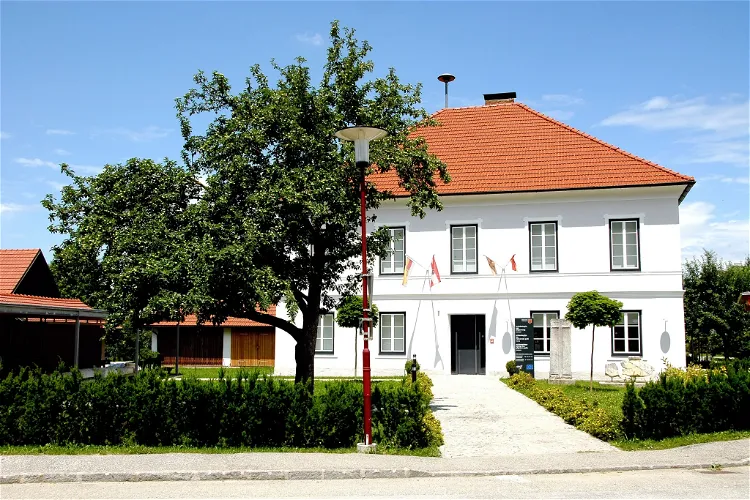
Archäologisches Pilgermuseum
GlobasnitzThe Archaeological Pilgrimage Museum Globasnitz is open to the public from the beginning of May until mid-October. This schedule allows visitors to plan their visit during the warmer months of the year, providing an ideal opportunity to explore the museum and its surroundings.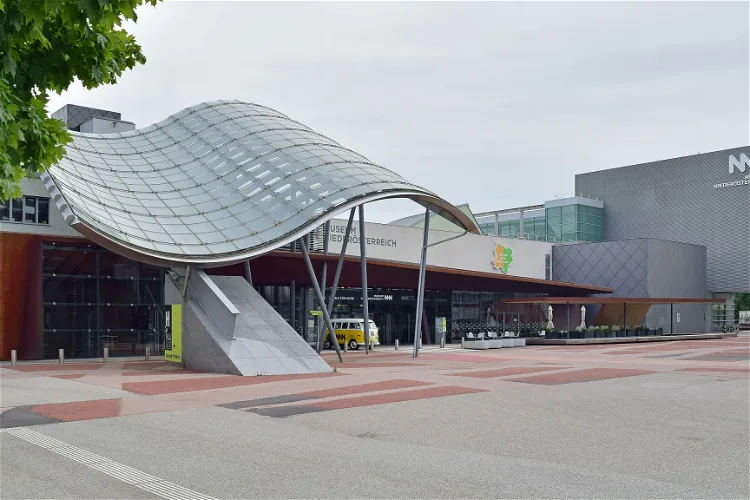
Lower Austria Museum
St. PöltenThe Lower Austria Museum, previously known as the Lower Austria State Museum, is the national museum for the state of Lower Austria. It provides a comprehensive overview of the fields of history, art, and nature. This museum is a great place for tourists who are interested in these areas to gain a deeper understanding of Lower Austria's rich cultural and natural heritage.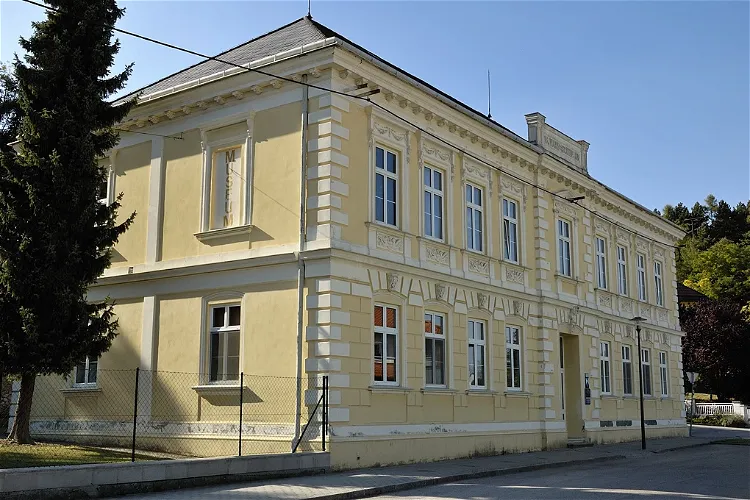
Stillfried-Zentrum der Urzeit
Angern an der MarchThe area of Angern, where Stillfried an der March is located, is rich in archaeological finds. These discoveries span from the Old Stone Age to the Roman period, providing a unique settlement continuum of almost 30,000 years. This makes it a fascinating destination for history enthusiasts and archaeology buffs.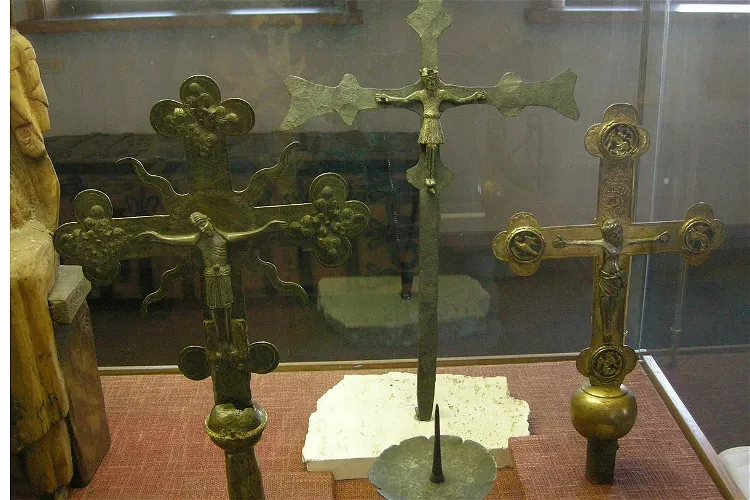
Schatzkammer Gurk
KlagenfurtThe Diocesan Museum (Diözesanmuseum) of Klagenfurt is situated at Lidmanskygasse 10A. This museum is housed in a modern building that is conveniently located next to the cathedral. It provides an easy access for tourists who are visiting the cathedral and want to explore more about the history and culture of the region.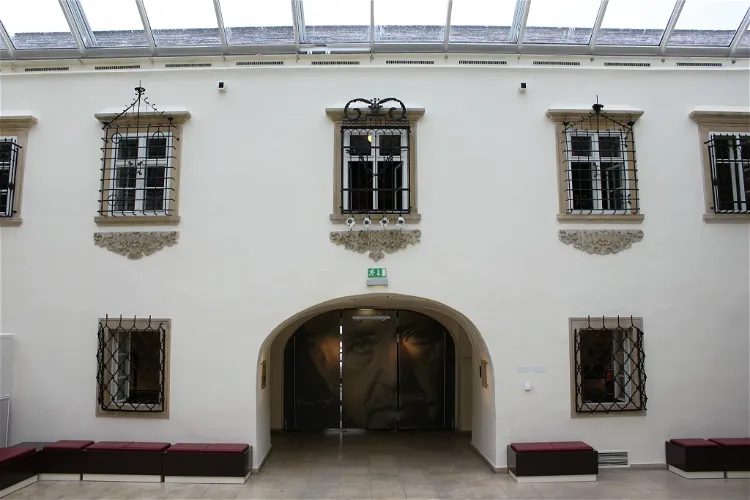
Landesmuseum Burgenland
EisenstadtThe Landesmuseum Burgenland in Eisenstadt is a museum that showcases the formation of Burgenland in the Pannonian region. This museum provides a comprehensive understanding of the region's history and its evolution over time. It is an ideal place for those interested in learning about the history and culture of Burgenland.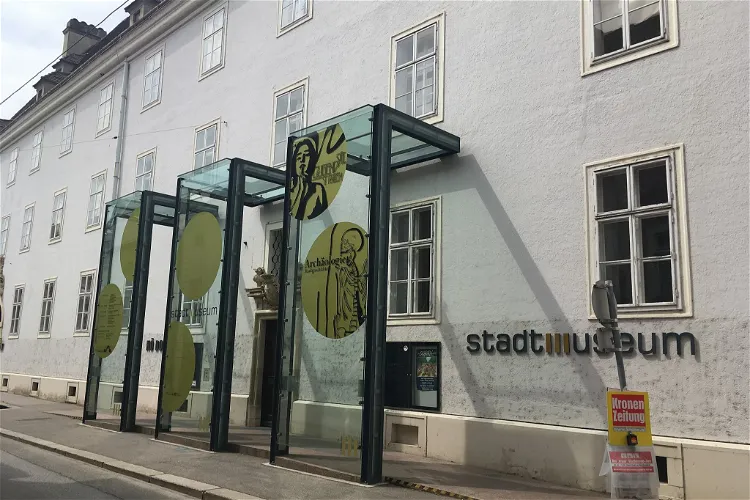
Stadtmuseum St. Pölten
St. PöltenThe Stadtmuseum St. Pölten, located in the Lower Austrian capital of St. Pölten, is a city museum that was inaugurated in 1909. The museum was established after a systematic review of archival materials and objects of historical significance that began in the 1880s. This museum offers a deep dive into the city's history and heritage, making it a worthwhile visit for those interested in understanding the past of St. Pölten.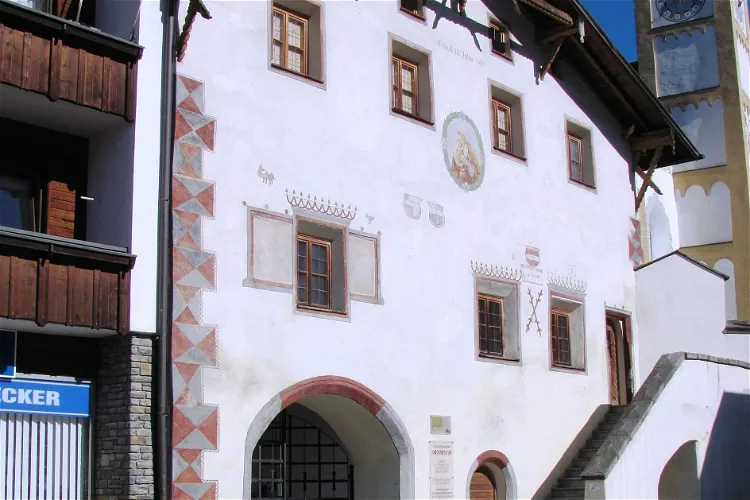
Archäologisches Museum Fließ
NiedergallmiggThe Archaeological Museum Fließ is situated in the municipality of Fließ in Tyrol. This location offers visitors a chance to explore the rich history and culture of the region while enjoying the scenic beauty of Tyrol.
Stiftsmuseum Mattsee
MattseeStift Mattsee, located in Mattsee, Austria, is a collegiate church that has been in existence since around 1045. It holds the distinction of being the oldest existing community of secular priests in Austria. This historical significance adds a unique charm to the place, making it a point of interest for those who appreciate history and architecture.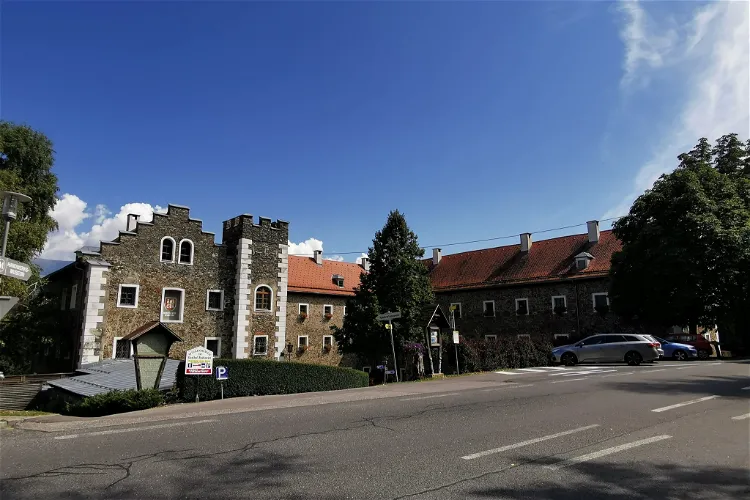
1. Kärntner Handwerksmuseum
GendorfSchloss Ortenburg, also referred to as Schloss Unterhaus or Paternschloss, is a significant historical site located in the village of Unterhaus, within the municipality of Baldramsdorf in Carinthia. This 18th-century building is a protected monument, offering visitors a glimpse into the architectural styles and historical significance of the period.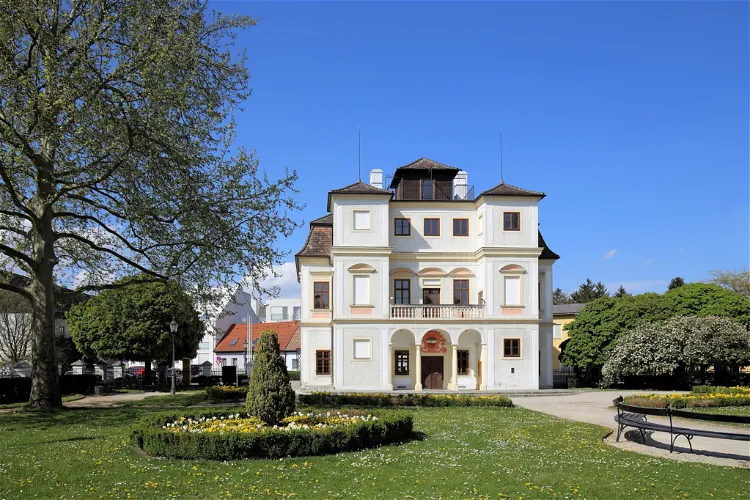
Bezirksmuseum Stockerau
StockerauThe Bezirksmuseum Stockerau is located in the historic Belvedereschlössl, a building with a rich history that dates back to the 15th century. This provides a unique setting for the museum and adds an extra layer of historical significance to your visit.- 61
Knappenwelt Gurgltal
TarrenzThe Knappenwelt Gurgltal is an open-air mining museum situated in Tarrenz, Austria. It offers a unique insight into the life and work of miners from the Middle Ages to the early modern period in the Gurgltal lead mining area. The museum showcases various buildings and machinery that were used during this period, providing a comprehensive understanding of the infrastructure and work processes of the miners.